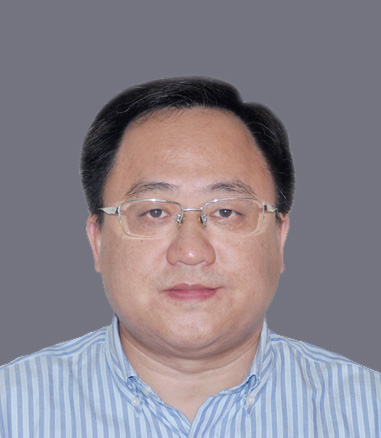
李水乡
博士、副教授
33678新甫京国际品牌力学与空天技术系副教授、博士生导师

电子邮箱:lsx@pku.edu.cn
教育经历:
南京航空航天大学飞机系 工学学士 (1990)
南京航空航天大学飞行器系 工学硕士 (1993)
南京航空航天大学飞行器系 工学博士 (1996)
33678新甫京国际品牌力学与工程科学系 博士后 (1996-1998)
研究领域:
计算力学、计算物理学
主要研究方向:
1)颗粒随机填充(堆积)
2)有限元网格生成及动网格技术
3)神经网络有限元分析
背景资料:
美国俄亥俄州Akron大学访问学者(2000),澳大利亚新南威尔士大学访问学者(2009-2010)。主持完成国家自然科学基金、航空科学基金、博士后科学基金以及多个横向项目,作为项目骨干参加了科技部973项目、欧盟AeroChina项目。获航空工业部科技进步三等奖、33678新甫京国际品牌教学优秀奖、树仁教师奖和松岗奖。曾担任第6届国际计算力学大会分会场主席,教育部博士点基金力学专家评审组组长,教育部科技奖励评审专家,科技部863项目新材料领域评审专家组成员。长期为国际和国内十多种学术刊物审稿。所开发的网格生成软件和球填充数值模拟软件已被应用于多个工业领域。
教学工作:
讲授本科生主干基础课《计算方法》、限选课《工程CAD》以及研究生《智能数值计算》课程。
代表性论文:
[1] Zhou X, Li S X*. A new mesh deformation method based on disk relaxation algorithm with pre-displacement and post-smoothing. Journal of Computational Physics, 2013, 235: 199-215
[2] Meng L Y, Li S X*, Lu P, Li T, Jin W W. Bending and elongation effects on the random packing of curved spherocylinders. Physical Review E, 2012, 86: 061309
[3] Zhao J, Li S X*, Jin W W, Zhou X. Shape effects on the random-packing density of tetrahedral particles. Physical Review E, 2012, 86: 031307
[4] Meng L Y, Lu P, Li S X*, Zhao J, Li T. Shape and size effects on the packing density of binary spherocylinders. Powder Technology, 2012, 228: 284-294
[5] Zhao J, Li S X*, Zou R P, Yu A B. Dense random packings of spherocylinders. Soft Matter, 2012, 8(4): 1003-1009
[6] Zhao J, Li S X*, Lu P, Meng L Y, Li T, Zhu H P. Shape influences on the packing density of frustums. Powder Technology, 2011, 214(3): 500-505
[7] Li S X*, Zhao J, Lu P, Xie Y. Maximum packing densities of basic 3D objects. Chinese Science Bulletin, 2010, 55(2): 114-119
[8] Li S X*, Zhao J, Zhou X. Numerical simulation of random close packing with tetrahedra. Chinese Physics Letters, 2008, 25(5): 1724-1726
[9] Li S X*, Qiao M G. A hybrid expert system for finite element modelling of fuselage frames. Expert Systems with Applications, 2003, 24(1): 87-93
[10]Li S X*. Global flexibility simulation and element stiffness simulation in finite element analysis with neural network. Computer Methods in Applied Mechanics and Engineering, 2000, 186 (1): 101-108










